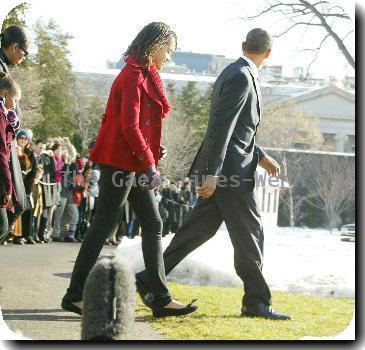Advocates for bereaved military families ask Obama to expand policy on condolence letters
By Kimberly Hefling, APWednesday, January 13, 2010
Bereaved kin push for military condolence letters
WASHINGTON — Army Pfc. Brian Matthew Williams, 20, took his own life the day before he was to return to Iraq. Because it was a suicide, the president didn’t send a condolence letter to his family. Nobody has planted a tree in his honor or carved his name onto a memorial wall.
Advocates for bereaved military families say soldiers like Williams deserve better. They’re asking President Barack Obama to send condolence letters to the next of kin of troops who die under a variety of circumstances not directly related to the war.
“Every military family pays a price when a loved one serves in the military,” Bonnie Carroll, a military widow who founded the advocacy group Tragedy Assistance Program for Survivors, wrote in a letter sent to Obama on Tuesday, as veterans and military officials met in Washington for a four-day suicide prevention conference.
“Their loved ones stand ready to go into harm’s way to protect our country,” Carroll wrote. “Their deaths are painful to their surviving family members, regardless of the circumstances or location of the death.”
There is no standard policy on how deceased military veterans are honored. Policies vary on whose names go on military and community memorial walls, whose families receive a Gold Star lapel button from the Defense Department or who can get a Gold Star license plate.
Currently, the White House sends presidential condolences to the families of those who died either in combat or as a result of noncombat incidents in a war zone, such as a car crash or illness.
However, presidential condolence letters are not sent to the families of those who commit suicide, either at home or at war. Families of those who die outside the war zones in other ways, such as in a training accident, generally don’t receive them, either.
A review is under way to determine whether presidential letters should be sent for suicides. Advocates say extending that honor to all deceased troops, regardless of how they died, would go a long way toward comforting the families.
The review comes as the military struggles in every branch with a higher rate of suicide than when the recent conflicts began. At the conference on Wednesday, Joint Chiefs of Staff Chairman Adm. Mike Mullen said the issue is one of “tremendous difficulty and challenge.”
“There does not appear to be any scientific correlation between the number of deployments and those that are at risk, but I’m just hard pressed to believe that’s not the case,” Mullen said.
Williams’ mother, Connie Scott, 54, of Owatonna, Minn., said a memorial service in her son’s honor was held at his Army post, Fort Carson, Colo., after he died in 2007. But his name was not added to a memorial wall there because he didn’t die in the war zone. His family members were not eligible for a Gold Star lapel button, which the Defense Department issues to the families of those who died from “armed hostilities.”
That lack of recognition, Scott said, made her feel as if her son’s death was not considered as significant as someone else’s.
“There needs to be more about the soldier’s life than the soldier’s death. There seems to be too many layers of recognition,” Scott said. “They still enlisted. They still took an oath to serve their country and give their life in whatever way their country asked.”
TAPS spokeswoman Kim Ruocco, 46, of Newbury, Mass., said the organization has received complaints about military bases and communities that do not include the names of those who died while serving in ways other than killed in action.
Recognition on such walls or in a condolence letter from the president is incredibly important to the families, she said — especially those who are dealing with a suicide.
“There’s already so much shame over suicides,” said Ruocco, whose Marine pilot husband John, 40, killed himself in 2005. “It feels like it wipes out the person’s whole life. So many of these soldiers and Marines have lived really stellar lives and given so much and sacrificed so much.”
Still, Ruocco said she’s seen some encouraging signs. She was pleasantly surprised recently on a visit to Enid, Okla. There, on a memorial near Vance Air Force Base, her husband’s last station, was a flag pole dedicated in his honor.
National Suicide Prevention Lifeline: (800) 273-TALK (8255).
_____
On the Net:
Conference Web site: www.dcoe.health.mil/training/upcomingconferences.aspx
Tragedy Assistance Program for Survivors: www.taps.org/
American Gold Star Moms: www.goldstarmoms.com/
Gold Star Wives of America: www.goldstarwives.org/










